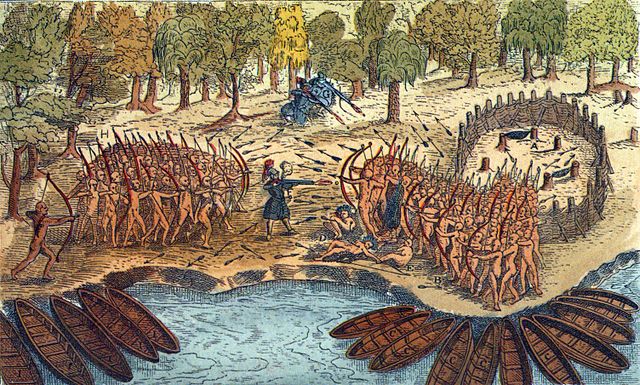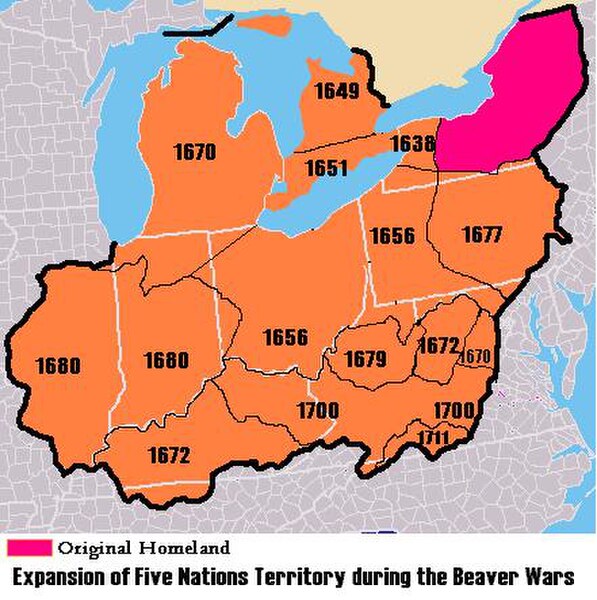Alexandre de Prouville de Tracy
Alexandre de Prouville de Tracy was a French military leader, statesman, and the seigneur of Tracy-le-Val and Tracy-le-Mont in Picardy, France. A professional soldier, he was a regimental commander during the Thirty Years Wars, and was later appointed commissary general of French forces in Germany. In 1663, he was commissioned lieutenant-général of the French colonies in the Americas. In 1664, he led an expedition that expelled the Dutch from Guiana. The following year he sailed to New France where, in 1666, he led the Carignan-Salieres Regiment and Canadien volunteers in an invasion of the Mohawk homeland. He returned to France after reaching peace settlements with the Mohawk and the other Iroquois nations, and was appointed commandant at Dunkirk, and later governor of the Château Trompette in Bordeaux.
Alexandre de Prouville de Tracy
The Iroquois, also known as the Five Nations, and later as the Six Nations from 1722 onwards; alternatively referred to by the endonym Haudenosaunee are an Iroquoian-speaking confederacy of Native Americans and First Nations peoples in northeast North America. They were known by the French during the colonial years as the Iroquois League, and later as the Iroquois Confederacy, while the English simply called them the "Five Nations". The peoples of the Iroquois included the Mohawk, Oneida, Onondaga, Cayuga, and Seneca. After 1722, the Iroquoian-speaking Tuscarora people from the southeast were accepted into the confederacy, from which point it was known as the "Six Nations".
Photo of an Iroquois woman in 1898.
Engraving based on a drawing by Champlain of his 1609 voyage. It depicts a battle between Iroquois and Algonquian tribes near Lake Champlain, with interference by the colonialists.
Iroquois conquests 1638–1711
The four "Mohawk Kings" who travelled to London in 1710.





